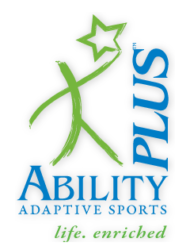When their autistic son Ryan was about 7, Alaine Breen and Paul McClintock of Melrose, Mass., first heard about adaptive sports. Both recreational skiers when they were younger, they were frequent visitors to the valley.
They soon discovered AbilityPlus, a valley adaptive sports program for people of all ages and disabilities based at Attitash.
So that winter they came up for a long weekend to give it a try. Ryan, a skier, did amazingly well, according to his mother. They came up a couple of more weekends that season.
They tried it again the next winter, a few more times. Then they increased the time up here the following winter. Soon, they had a place up here.
Ryan became such a good skier, he was skiing better than many of the volunteers essential to the program.
So when he became a teen, his parents put him in the Attitash Mountain Teen program for both the social and athletic opportunities.
Ryan skis steeps, bumps, trees and whalebacks. The program’s goal is to groom future ski and snowboard coaches.
“This has helped him with his decision-making,” said Breen. “Having these experiences has been huge.”
Last spring, Alaine became a board member of AbilityPlus.
Founded 20 years ago in 1997, the program is open to people with physical and developmental disabilities. The offices are located in the Adventure Center.
Primarily focused at Attitash and Wildcat, valley program director Liz Wehmeyer of Intervale says the winter program is for skiers, snowboarders, snowshoers and cross-country skiers. At times, they go to other valley ski areas.
Last weekend, the organization held a pilot project at Jackson Ski Touring Foundation.
“Our goal is for skiers to get a feeling of normalcy, independence and accomplishment,” Wehmeyer said.
Many skiers with disabilities return to the slopes with their families after a malady. Also there are families new to skiing having discovered it for their loved ones to achieve that independence.
Some 120 people participated last winter. Wehmeyer figures they give 600 lessons each winter, with each participant working with two volunteer instructors per lesson.
Participants use a myriad of equipment like outriggers which are ski poles with skis underneath. Athletic skiers might you a single monoski with outriggers as seen in the Paralympics. Those with serious mobility issues use a bi-ski where they sit in a molded chair with two skis underneath. There are also sliders, akin to walkers.
Instructors may also use tethers to help skiers make turns.
The program relies heavily on volunteers, trained to be instructors. They have varied ski abilities. Full-time volunteers commit to 21 days a season, but Wehmeyer happily considers all availabilities and encourages people to contact her at lwehmeyer@abilityplus.org if they’re interested in seeing if they’re a fit.
Some volunteers get hooked. There’s one who has been there for 17 years and several serving a good decade. Volunteers tend to become better skiers as they’re taught how to instruct.
Sometimes volunteers feel like they’re the ones benefiting from the program.
“It is such a rewarding thing to give back and be a part of this gift to somebody,” Wehmeyer said. “Often we feel we get more out of it than the participants. We enjoy it so much.”
The families grow closer. They socialize. They see their loved ones happy. Friendships and marriages have sprouted from the program.
Volunteers also need open minds.
“We all need to be flexible and creative,” Wehmeyer said.
One little deaf and autistic boy had a hard time on skis. Then instructors suggested he give snowboarding a try. The boy loved it.
“Instructors can change things up,” Breen said. “It’s about being safe, having fun.”
The program is funded through donations. Participants pay for lessons and lift tickets but there is financial aid available to those who need it.
On March 11, AbilityPlus is holding Spring Fest at Wildcat which includes a ski-a-thon, silent auction, raffle, buffet, apres ski party and more. Participants can register as individuals or as a team through abilityplus.org.
The winter weekend program tends to get going in November for volunteers and hits its stride during December vacation week and wraps up at the end of March.
But the organization also holds summer programs featuring canoeing, kayaking and bicycles. There are some specials events for fly-fishing, hiking and walking.
“Some of our best friends have come out of this program,” Breen said. “It’s like a big family.”
